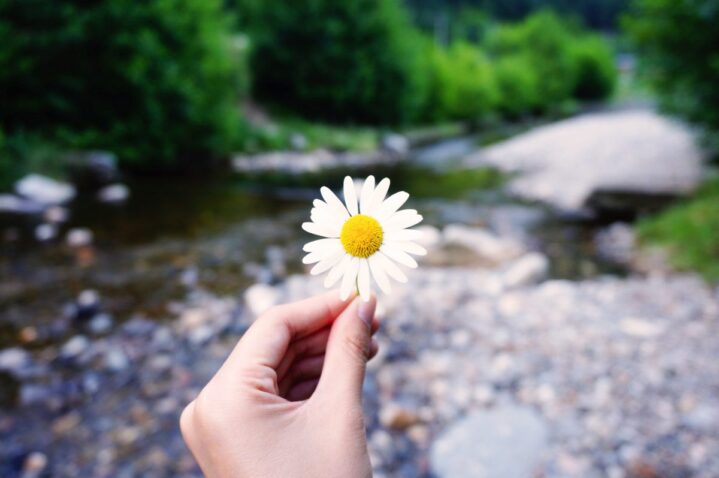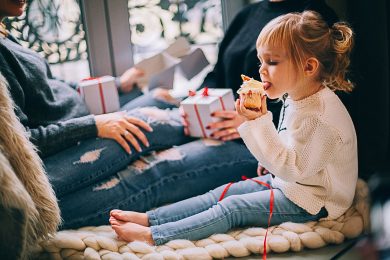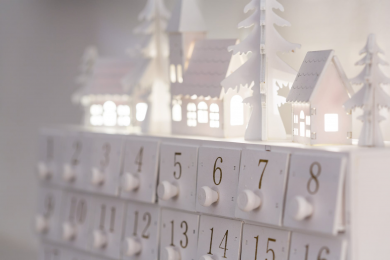
Giving and receiving gifts that improve your health
The festive season will soon be upon us. It can be one of excitement and fun or tension and expectation. You may be deeply connected to your religious beliefs at this time, or feel that you are part of something greater than yourself or simply time to have a break and a holiday. It is a time for many to travel, visit with family, friends, and enjoy the celebration and connection. One area that I love during the festive season is decorating my home. It is always done on the first day of December and I take time to look at the objects that I place around the house to remember the person who gave me the item or where I was when I bought it. It brings me great joy and I smile all day with such fond memories. As an expat and also work that I have done in that past, there have been times when I found myself on my own at this time of the year. That may be true of many people. When I was on my own, I would always reflect on what the year had been like, where I had been, who I had met and there was a feeling of being connected to others.
 There has been excellent research done over many decades on how people feel with acts of kindness. The Christian festive season and other religious festivals have times when it is important to be in touch with those less fortunate than yourself or to open the doors of your home and invite others to share meals with you and your family. Did you know that we have chemical changes in the body when we are pleasant, happy, and joyful, plus, when we have “acts of kindness” to others? This can and has been measured medically and scientifically. One study by Emroy University in UK, Ron Breazeale PhD in Psychology Today.
There has been excellent research done over many decades on how people feel with acts of kindness. The Christian festive season and other religious festivals have times when it is important to be in touch with those less fortunate than yourself or to open the doors of your home and invite others to share meals with you and your family. Did you know that we have chemical changes in the body when we are pleasant, happy, and joyful, plus, when we have “acts of kindness” to others? This can and has been measured medically and scientifically. One study by Emroy University in UK, Ron Breazeale PhD in Psychology Today.
What are these chemical changes and hormones and what do they do?
There are four primary chemicals in the brain that affect happiness: dopamine, oxytocin, serotonin, and endorphins. By designing gamified experiences that activate these chemicals, you can increase happiness and loyalty. According to Dr. David R. Hamilton, acts of kindness create emotional warmth, which releases a hormone known as oxytocin. Oxytocin causes the release of a chemical called nitric oxide, which dilates the blood vessels. This reduces blood pressure and, therefore, oxytocin is known as a “cardioprotective” hormone.
Pain – kindness releases endorphins in the brain.
Stress – kind people age slower and have lower stress that the average person.
Anxiety and depression – kindness improves mood, depression and anxiety.
Kindness stimulates the production of serotonin which heals wounds, calms and increases happiness.
If we are all connected, which I believe we are, all 7.7 billion of us on this beautiful planet we call earth, our home, how can we help each other. One way is through acts of kindness and acts of kindness come in many and varied ways. It can be overwhelming to think about it, however, it may start with smiling at someone a total stranger, to helping someone with a grocery bag, helping someone with a pram, or listening to someone and not offering any advice. Giving them your full attention. I’m sure most people reading this article are part of wonderful acts of kindness, from smiling at someone, or giving an older person a seat on the train or bus, but there has to be more than that.

A few days ago, I was in a store and a young child about 4 years old was very excited about the purchase her mother and her were making. The self-checkout was not working, and the mother told the girl they would have to go to the counter. The women behind the counter spoke with the mother, then made eye contact and smiled at the child. They engaged in conversation about the purchase, all the while, the child was asking can she make it happen so she could take the item home. When the women behind the counter said, “all done, you can take it home”, the child was very excited. As they started to walk away, the child stopped, turned kissed her hand and then blew the lady a kiss of thank you. The child was not prompted, not encouraged, just a smile and a kiss to say thank you from a child who knew that meant something special. For those of us watching it was a moment, where everyone was smiling and there was definitely a reaction in our bodies, of delight and also calmness, that everything for that moment was OK. This got me thinking. If the scientist is right and we in fact change (which we do) on a chemical level with an increase of serotonin and dopamine, we then have the potential to tap into that at any time.
What might happen if we pursued more of this in our daily lives? There have been hundreds of books, articles and scientific papers on these changes in the body. I am now asking who, through this festive season, wants to be a part of simple acts of kindness. Around the world there are organisations that promote these acts.

One item I have in my home which I just love is an advent calendar. I have been known to email many people around the world with advent calendars leading up to Christmas Day. This year something different. Start with the 1st December and for 25 days what will your acts of kindness be and the gift you give yourself and others in return. Each advent calendar has an opening for each day from the 1st to the 25th December. At the end of each day write down what you saw was an act of kindness and also what your act of kindness was. Place it into the pocket or space provided in your advent calendar. The most important piece here is “not” what you did, but what you “observed”, was an act of kindness. That way it is not about your ego to say, “look at me”, but from a genuine giving from yourself to another. When we observe someone else’s act of kindness it stimulates us in a way that we want to be apart of that feeling. When we see others and their acts of kindness it starts the change chemically in us and then we may have a clearer picture of doing something for someone else. At the end of the 25 days, you may like to reflect on how you feel and what took place through the weeks. You may want to leave them there for next year and instead of writing out new ones, take them out for each day and perform them again.
The most profound thing here is most acts of kindness don’t cost anything or very little.
It is lovely to have a stranger pay for your coffee at a coffee shop for no other reason than they wanted to, and you may not ever see them again. I have had my toll paid by the car in front of me when I was driving on a freeway and never knew who it was. It certainly made me feel great and then of course I paid it forward. It was not about me, nor should it be. It is about “US”. Those who live on this most beautiful blue planet. Check into my website mid-November to read the blog if you would like to be part of the the advent calendar this year for acts of kindness over the festive season.
Health and Happiness
Karla Walter



